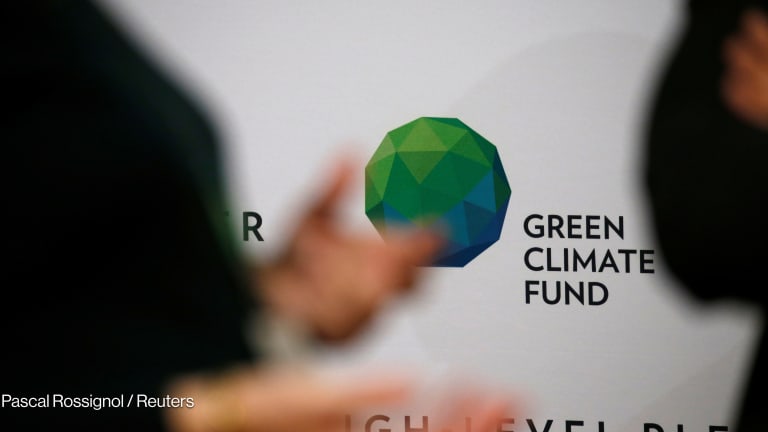In December 2009, developed country parties to the U.N. Framework Convention on Climate Change in Copenhagen, Denmark, made a seemingly lofty pledge to the world: raise $100 billion a year by 2020 to support climate action in developing countries and make the world a much safer place to live in.
Nearly six years later, money mobilized for climate financing is nowhere near that target, despite an early $30 billion commitment during the fast-start finance period. Even the Green Climate Fund, considered a major vehicle to bankroll global climate finance, has only been able to raise $10.2 billion last year — money that will be spent over a three-year period.
Beyond the fact that the world is woefully off track in meeting this ambitious target, renowned economist Jeffrey Sachs believes there are two major problems surrounding this lofty pledge: lack of honesty, and that $100 billion a year is still too small to make an impact.
Read more stories on climate finance:
► For those displaced by disasters, label and legal status remain out of reach
► In Mexico, tackling climate change starts with corruption
► MDBs boost climate finance, but not for the most vulnerable
► What future for climate adaptation finance?
► For most G-7 countries, a larger coal footprint since Copenhagen






